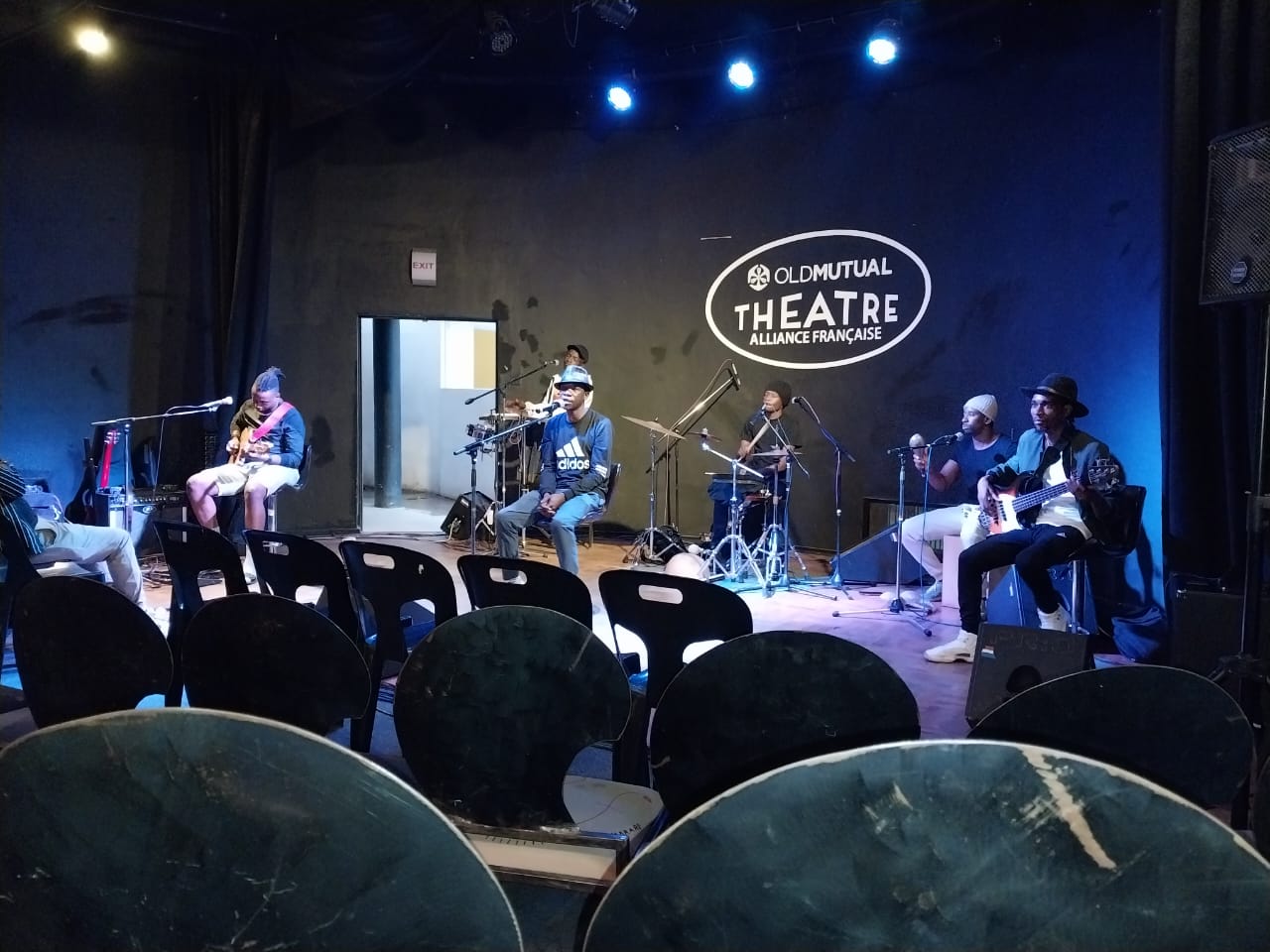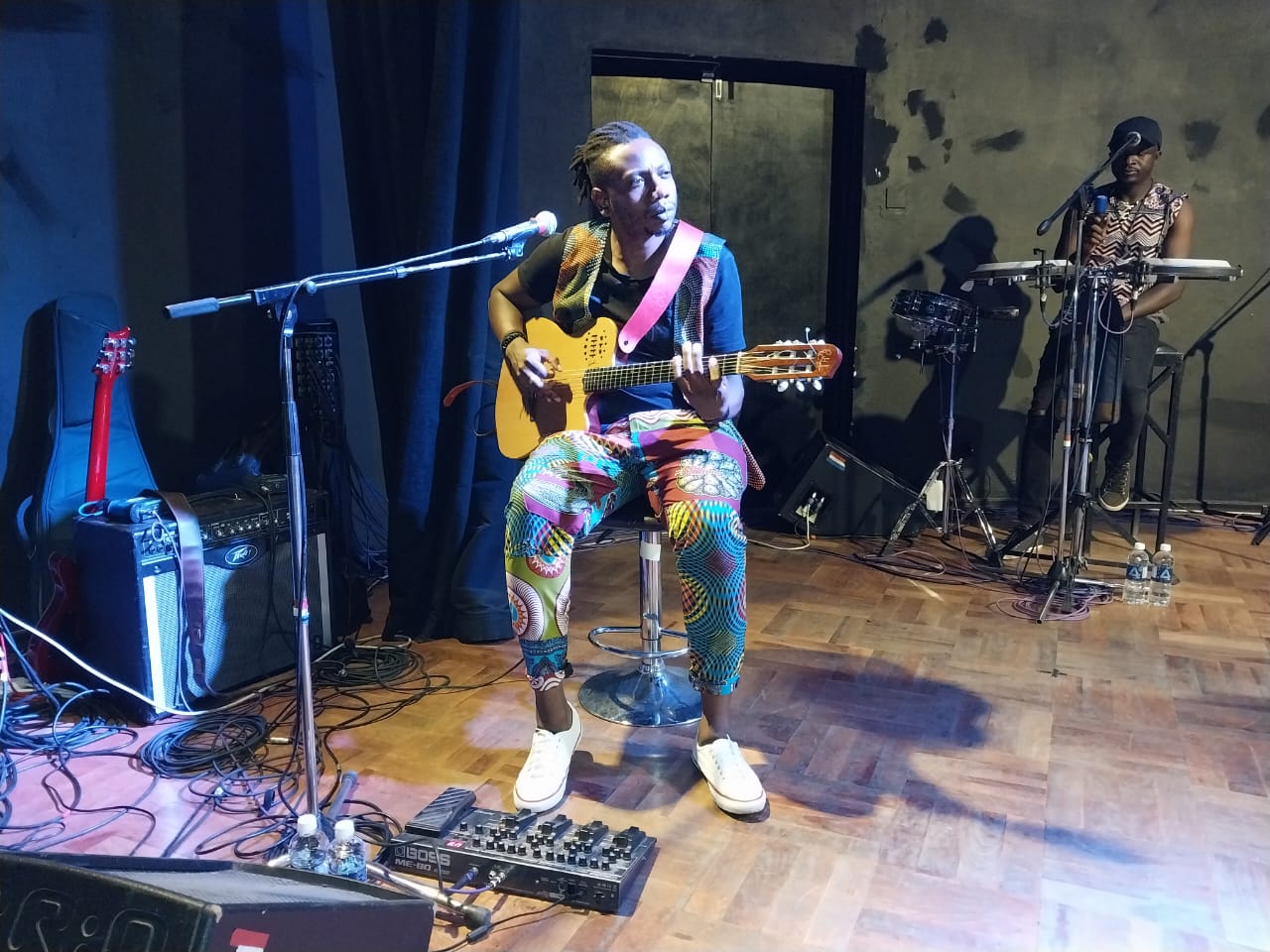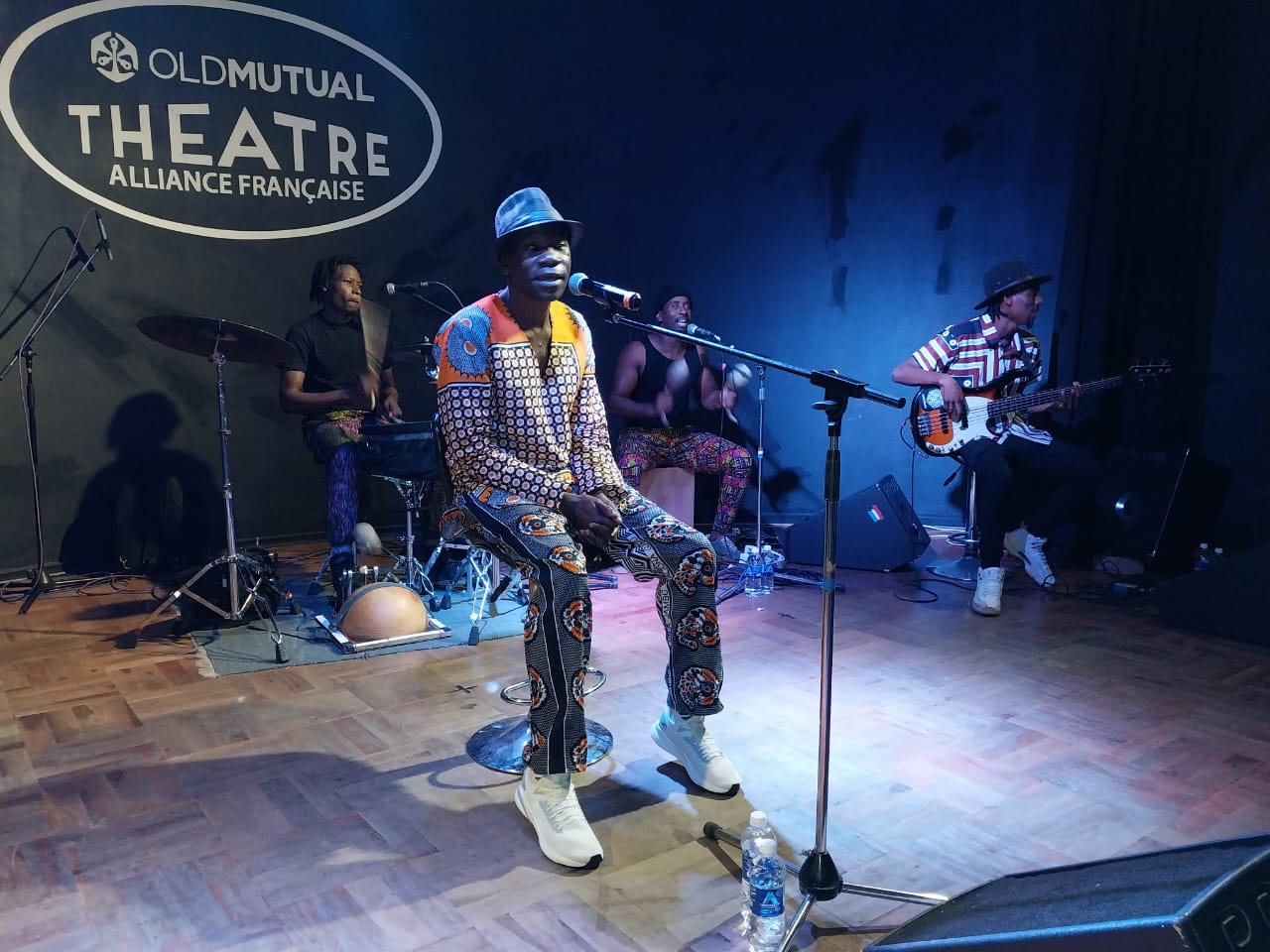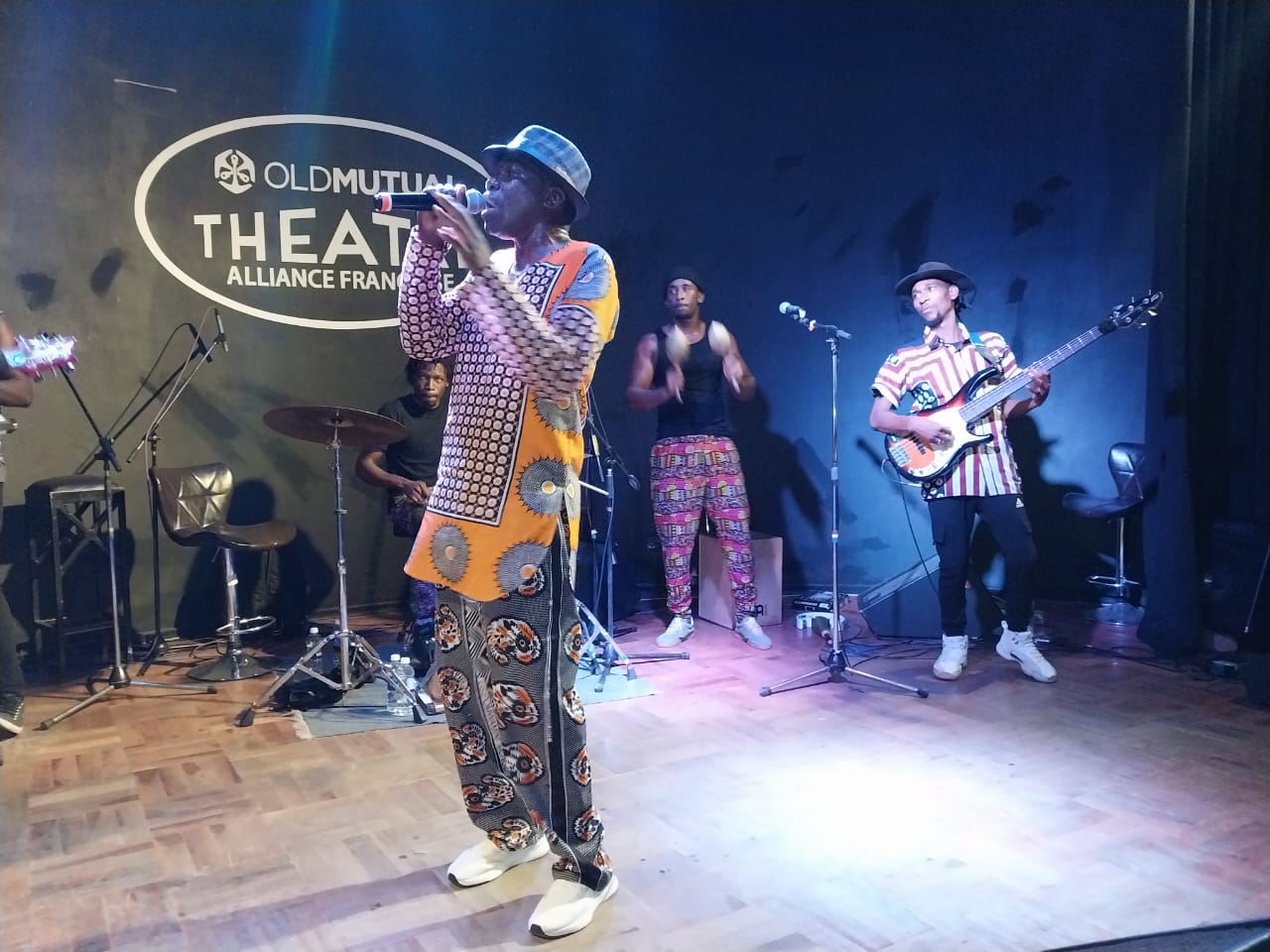Feature: Zim’s finest export Mokoomba to return to UK for WOMAD Festival
One of Africa’s finest bands, Mokoomba (from Victoria Falls, Zimbabwe), will appear at this year’s WOMAD festival in Britain. The dates for their 2023 international tours are yet to be released. They are set to release a 13 track album and 2 singles between April and June 2023. They are already playing some of the new material at their shows.
I attended one of their recent shows in Harare, an acoustic set. One new song “Sona” is a fine ear-worm about a very beautiful girl. It went down very well. Here is an update on the show I attended and generally what to expect.
I wondered where I should seat before settling on stage right, on my left, where Trust Samende plays guitar. [That’s because of my respect for an encyclopedic guitarist who knows the lines of Zimbabwe’s finest music from different generations.]
It’s a decision I don’t regret eventually, as I am on the active side of his guitar fretboard. I was advised by Tuku’s former engineer Vusimuzi Moyo, the sound engineer on the day, at Alliance Francaise Old Mutual Arena.

I managed to witness part of the rehearsal which was like a studio performance. Moyo’s involvement may have gone some way in ensuring the live sound surpassed the recordings of live shows online.
With Mokoomba there is no dull moment. Samende is a guitarist in form. Winky D featured his guitar lines on his latest album.
Samende explains: “I spend more time listening to all kinds of music, picking the latest trends. I count it as practice. Even when watching a movie, I study the mood of the film, the score and incidental music.”

Samende has no specific guitar inspiration because listening to too much of any one guitarist subtly promotes plagiarism: “I just try to express myself with my guitar solo lines. I am against borrowing licks from Jonathan Butler, George Benson or others. Otherwise when I play you might end up hearing more of my influences. I try to create my own feel and express my feelings.” We will return to Samende’s local impact later on.
Watch Samende’s summary of Mokoomba and a demonstration of his guitar prowess in this previously unreleased short video here:
Lead singer Mathias Muzaza’s parents were from Zambia and Angola. They all grew up in Victoria falls-Binga area. Victoria Falls is a 10 minutes-drive from Livingstone in Zambia. They speaks 7 languages each.

Muzaza can be a soothing soukoss singer, a ventriloquist, a startled teenager who has just lost both parents, a charming lover with a date with beautiful “Nyaradzo” from ‘behind that mountain’ or ‘Seri kwe gomo;’ or on the catchy new chorus “Sona” serenading ‘a very beautiful girl,’ a lead singer thriving on any stage atmosphere to give of himself. All this in one evening.
Commanding as his voice is, he shows no creases on the brows of his face. It’s his natural voice(s). Listen very carefully because after the show he doesn’t have a phone. The stage is his best contact.
Muzaza (like all of Mokoomba) can work a crowd. He is engaging between the songs with a ready repertoire of lines. He knows when to speak, sing, change pitch, charm, startle, pause or retreat backstage. Timing is everything.
Mokoomba’s catalogue is rich. From slow tempo, to acapellas and then fast tempo. Muzaza rocks to the music in his swivel chair, stands or moves on the dance floor.
They open the show seated, Muzaza with his 2 water bottles. They major in music, a universal language. Their vocal languages are a working formula. “Nyaradzo” is the only shona language song, a harmony piece.

Ordinary persons’ vocal exertions can only be carried so far. Not Mathias Muzaza, as he constantly change gears. When the show is over Muzaza withdraws into his shell. He has emptied his 2 water bottles and emptied himself. Perhaps he preserves his valuable voice box carefully, immediately after shows. It also preserves the mystery of the reserved front-man.
Samende was on his right. Muzaza’s ‘ad libs’ celebrate also, the 2 drummers directly behind him; the drums of Vic Falls; the drums that thunder. Muzaza introduces the drums only “Waile” remembering being a boy, experiencing his cultured upbringing that included hunting and fishing. It’s a song for a boy returning home.

Mokoomba feature two sets of drums; a modern electric set and congas. Ndaba Coster Moyo and Miti Mugande do not take half measures. Patisani Moyo combined his hosho, cajon drum (which looks like a card-box he can seat on) tambourines (and more) as he moved around the stage. It was an acoustic set, so his keyboards were well out of sight for the day. Patisani insists the Mokoomba rock set is just as hot.
Mokoomba is a celebration of a fusion of a variety of various but polished musical styles including drums, exotic and indigenous guitars, vigorous footwork and hand-clapping.
Samende is armed with his Oliver Mtukudzi style Godin guitar and an electric guitar. Though known by the short form name: Trust. But the band refers to him with his full name Trustworth. Partly because his fingers on the guitar are just that: trustworthy! He opens the show on the Godin. The rock guitar will work later as he expresses himself with solos. Surprise, surprise: he is also good at backing vocals harmonising to Muzaza’s Lead, as they all are. His strumming is meticulous. His fret hand has an amazing rich sound and with finger independence on his left hand.
Samende’s rich full voice is a shock considering he has made his name as a virtuoso guitarist. Call and respond is very much a part of the Mokoomba set. A bass voice grounded the harmonies impressively. To Mathias’s left was bassist Tjoe, seamlessly standing in for Abundance Mutori, who was away on this particular day.
Towards the end protests of “One more” by the crowd, (already on 3 more), were suddenly accompanied by a guitar to the tune “One more.”
The most descriptive words have already been exhausted on Mokoomba: “The most this, the most that.” Even comparisons have been used up. But they still put in a shift and do the simple things well, even after 15 odd years. Mokoomba neither ride on a name nor take audiences for granted. They are professional even while having fun.
They grew up in the houses and bushes around Victoria falls town barely rubbing shoulders with wild elephants roaming between Botswana, Vic Falls and Hwange, an area in National parks. Sightings of lions and buffalos are not un-common. Muzaza retains the strongest attachment to the area. He is an ambassador of the town and its ways, returning to his home area immediately after shows.
But talents knows no bounds. From these humble beginnings emerged a world class band, known globally by those with a taste for fine music. Black and white have danced to their upbeat music since 2008 and been soothed by the mellow tunes. You require only an open mind to appreciate their efforts.
If Muzaza’s tourism ambassadorial role begs more formal recognition so does Samende’s preservation of much loved Sungura and Afro jazz classics from Zimbabwe. He runs Some of Harare’s best rehearsal rooms. He produces an acoustic re-arrangement of older Shona classic songs as he partners the composers or front men on the show “House of Kulcha” formerly known as “House of Gruv” on Youtube.
Samende has featured Josephat Somanje (Pengaudzoke), Allan Chimbetu (Chimbetu brothers & Dendera Sounds Orchestra), Rockford “Roki” Josephat, Mafriq, Mathew Kawunda (of ‘Mateo and friends’) among others.
Samende has also jammed on acoustic guitar with Somanje and Chimbetu while backing the others with a youthful team of musicians. House of Kulcha needs to run on local Television and get funding and sponsorship. Not that he is complaining. But the idea has potential and Mokoomba’s impact can also be felt more in their home country.






